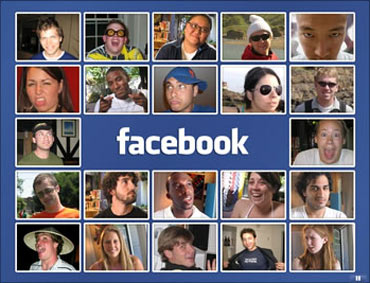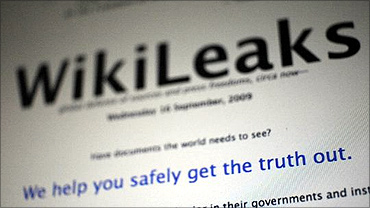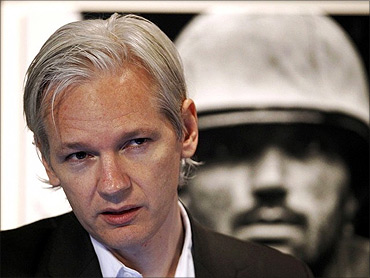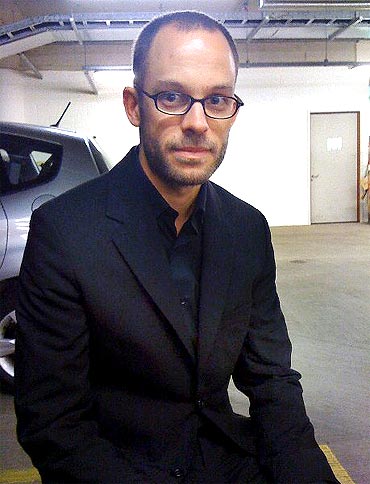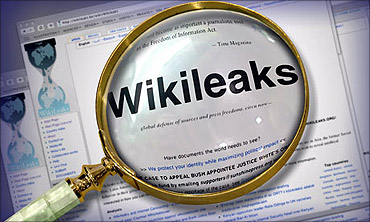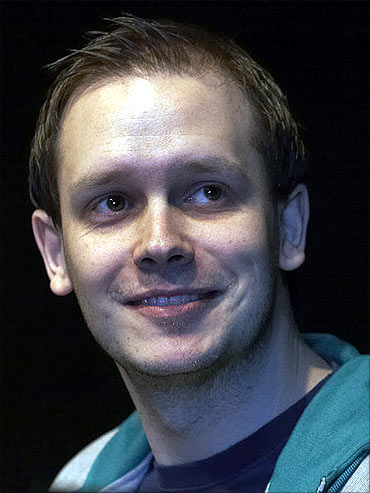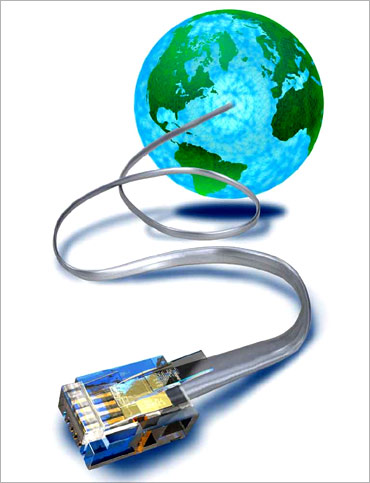 | « Back to article | Print this article |
How Wikileaks will change the online world
It was a busy year online for the world. The total amount of data on the world's computers is thought to have crossed 1 zettabyte - a trillion gigabytes.
The growing popularity of video means that more and more data is flowing along the world's Internet networks - an expected half a zettabyte by 2012. YouTube and Facebook are more closely linked to our everyday lives than ever, and ebooks and ereaders are coming of age. Everything from entertainment to education and medical care is moving irrevocably online.Click NEXT to read on
How Wikileaks will change the online world
But the most widely discussed real-world impact has been that of WikiLeaks, the whistleblower website that invites and publishes confidential documents about the misdeeds of states and corporations.
Its revelations on the conduct of American war and diplomacy have embarrassed the US government and leaders of other countries, including our own.
Here are two ways in which WikiLeaks, even if it does not itself survive, will change the world in 2011 and after.
Click NEXT to read on
How Wikileaks will change the online world
Threat and promise
So Julian Assange was arrested and may be extradited from the UK to Sweden to face criminal charges. But that hasn't stopped WikiLeaks, and it hasn't stopped leaks.A whole new crop of leaks-purveying websites has come up. Whether or not they survive, the threat and promise of whistleblowing is only going to grow in 2011.
OpenLeaks opens for business in early 2011. Its prime mover is Daniel Domscheit-Berg, a former colleague of Assange who broke with him over several issues including the fact that Afghan war documents were released by WikiLeaks without the names of Afghan collaborators obscured.
Click NEXT to read on
How Wikileaks will change the online world
As its slogan - "Unmasking the decision-making process" - indicates, Brussels Leaks is a website dedicated to laying bare the lobbying behind the vast EU budget-making machine. The website says "journalists, activists and communications professionals" are involved.
"The Balkans are not keeping secrets anymore" is Balkan Leaks's strapline. The site aims "to promote transparency and fight the nexus of organised crime and political corruption in the Balkan states".
Its latest release appears to be a letter from a Russian energy company to the Bulgarian vice-president, Angel Marin, offering its services in an area which is allegedly not within his official responsibilities.
Click NEXT to read on
How Wikileaks will change the online world
Finally, there is the Australian TradeLeaks which "is dedicated to openness and transparency in trade and commerce", and wants consumers and sources to post leaks directly on its website for the public, which can rate the revelations.
India's turn will come. Readers and the media have enjoyed stings and the WikiLeaks output that implicated or embarrassed public personalities including Rahul Gandhi. India tends to leak from the top, but Wikileaks-like sites are designed to gather leaks from any level.
There are assuredly major leaks to be expected around government, military, industry, environmental concerns and more. Expect to be shocked and entertained.
How Wikileaks will change the online world
Icann administers the Internet's domain name system, which maps server names to their numerical addresses. This is what allows you to type "www.business-standard.com" in your browser and connect to the Business Standard website without needing to know that its server address is 202.87.41.181.
This means that Icann has a lot of power. Although independent, it is easily pressured. It was quick to cut off access to WikiLeaks after the release of US embassy cables.
All it had to do was delete the domain name so nobody would find the website, even though the servers (which were out of its control) continued to function.Click NEXT to read on
How Wikileaks will change the online world
This is not often done, but one to whom it was, Peter Sunde, a Swede who is one of the founders of The Pirate Bay.
TPB is a website which helps users find and download multimedia files, many of which may be copyrighted, on private computers around the world. This is called "peer-to-peer" networking, or p2p, where both or all parties are equal.Sunde tweeted that "Icann once gave away one of my domain names to Ifpi. They also let Ifpi be the panel that decided if it was correct." Ifpi is the International Federation of the Phonographic Industry.
Sunde and his colleagues are fighting a case brought against them by the recording industry in Sweden. If they lose they face fines of 4.2 million pounds terms.
Click NEXT to read on
How Wikileaks will change the online world
In effect, this would set up a parallel, shadow Internet, or "darknet". There are many aspects to consider, from finding a more flexible and less easily controlled way (than domain names) to index material on this other Net to finding ways to cut out spammers, say, or pornographers.
It's going to get complicated before it gets easy, but expect 2011 to shake the foundations of the current Internet order.
